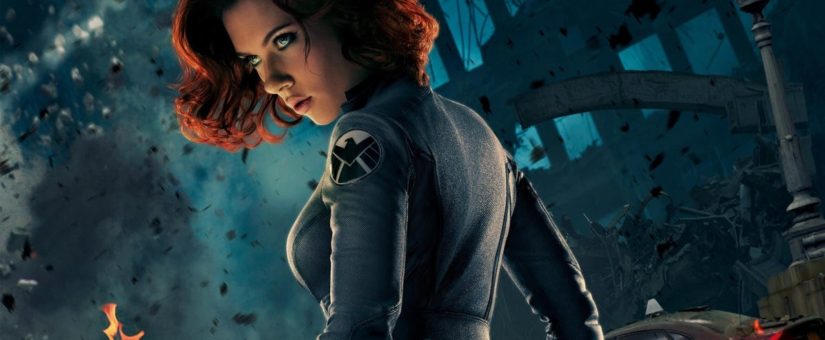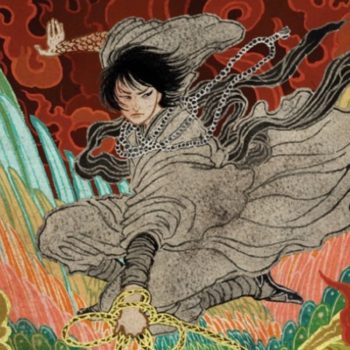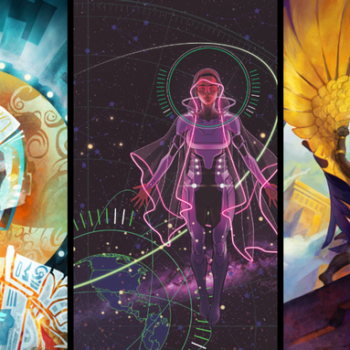
The Pitfalls of the Strong Female Character
- Posted by Augur Blog
- On July 31, 2019
- 0 Comments
- black widow, n.k. jemisin, strong female character, tropes
By Jorie Rao
I’m not like other girls. I wear a leather jacket. I look perfect when I’m kicking butt. I like cars and weapons. I’m independent, yet soft enough that I don’t outshine men.
I am the Strong Female Character.
Or at least this is the way some writers represent strength in a female character.
People who write female characters like this equate a “strong female character” with having traditionally masculine traits, making the phrase more synonymous with “female with masculine qualities” and not with a strong character who is a woman.
Sure, I can admit that sometimes the term is used to mean a strongly written character who is female like Hermione Granger, but for too long the term has been associated with one version of what a Strong Female Character (or SFC) should be like and that has caused me to grow frustrated with the term.
The issue is that historically female characters were written as background noise: love interests, mothers, quirky best friends, evil temptresses, and sometimes, if you’re lucky, a Frankensteined version of those archetypes that take the characters and sew in masculine strength and call it a day.
I’m not mad that writers want to write a female character who can kick butt and take names all while wearing a leather jacket and driving a vintage car. I would be lying if I said I wasn’t myself partial to the Anita Blakes of the fiction world.
But when writing the gun-toting, leather-wearing tough cookie, some writers leave out realistic flaws, making the characters seem like they were just a subset of male protagonists and not people in their own right.
That’s not to say a SFC cannot be the leather-wearing badass and also be a realistic, fleshed-out character. They exist in characters like Buffy and Ripley and are some of the strongest characters in fiction.
The problem stems from the societal idea that male is the default and that being strong is an inherently male thing and should look one specific way: physical toughness.
But physical toughness is only one type of strength—one valued by readers and associated with strong male protagonists. That means when a writer wants to make a SFC, they make her physically tough because that is recognized as valuable, implying her strength is in her maleness.
Enter Black Widow, the archetypal male spy character but with breasts—or at least that’s the way the movies portray her: strong in the way men are strong.
In the comics, her character exists outside of her skin-tight jumpsuit, so the audience can see her as more than someone who is physically tough. But the movies took a character, who was strong in many ways and gave us the token Strong Female valued for her masculine qualities.
Recently women have been front and center in stories, but the method for writing SFC’s hasn’t fully evolved with them. Writers are still relying on those archetypes from when women were window dressings in a story.
To be fair, writers fall back on archetypes because they exist and have been used forever, but the writers forget that all characters need flaws and personality quirks, even the tough female characters. And no, being emotionally unavailable and looking good in a tight outfit do not count.
Instead, I would like to see more strong characters, of all genders, with traditionally feminine qualities like empathy, tolerance, or gentleness and have people call them strong characters alongside the gun-toting, leather-wearing heroines and then maybe the term wouldn’t frustrate me as much.
Thanks to writers like N.K. Jemisin, whose female characters like Essun are strong in multiple ways, I have hope for the SFC.
Jemisin writes women with complex motives, physical strength, and gentleness, giving them a depth that stems from various strengths as opposed to relying only on physical toughness.
Characters like Essun signal a shift away from the outdated archetypes and a movement into SFC’s who can be unapologetically human just like their male counterparts.
This makes me believe that the phrase can be repurposed to mean a strongly written character who is also female, but only if we readers give those kinds of female characters the attention they deserve, so writers know we value more than one kind of strength.
JORIE RAO is an English Literature professor with a passion for reading and writing, especially all things sci-fi and fantasy. She has an MFA in Creative Writing and Composition Theory and won the Toni Libro Award for Excellence in Writing.




0 Comments